Overhanded with fertilizers and lost all my roses?
ladyrose65
12 years ago
Featured Answer
Sort by:Oldest
Comments (28)
seil zone 6b MI
12 years agolast modified: 9 years agoRelated Professionals
Redondo Beach Landscape Architects & Landscape Designers · Vernon Hills Landscape Architects & Landscape Designers · Wareham Landscape Architects & Landscape Designers · Jackson Landscape Contractors · Belmont Landscape Contractors · Beverly Hills Landscape Contractors · El Sobrante Landscape Contractors · Hampton Bays Landscape Contractors · Maywood Landscape Contractors · Miller Place Landscape Contractors · Nutley Landscape Contractors · Raleigh Landscape Contractors · Santa Maria Landscape Contractors · St. Louis Landscape Contractors · Antioch Landscape Contractorsteka2rjleffel
12 years agolast modified: 9 years agoladyrose65
12 years agolast modified: 9 years agocaldonbeck
12 years agolast modified: 9 years agoroseseek
12 years agolast modified: 9 years agozack_lau z6 CT ARS Consulting Rosarian
12 years agolast modified: 9 years agoteka2rjleffel
12 years agolast modified: 9 years agosandandsun
12 years agolast modified: 9 years agozack_lau z6 CT ARS Consulting Rosarian
12 years agolast modified: 9 years agomichaelg
12 years agolast modified: 9 years agomad_gallica (z5 Eastern NY)
12 years agolast modified: 9 years agoladyrose65
12 years agolast modified: 9 years agodiane_nj 6b/7a
12 years agolast modified: 9 years agokentucky_rose zone 6
12 years agolast modified: 9 years agoladyrose65
12 years agolast modified: 9 years agosandandsun
12 years agolast modified: 9 years agokathy9norcal
12 years agolast modified: 9 years agoaggierose
12 years agolast modified: 9 years agolucillle
12 years agolast modified: 9 years agostrawchicago z5
12 years agolast modified: 9 years agosandandsun
12 years agolast modified: 9 years agoTerry Crawford
12 years agolast modified: 9 years agotaoseeker
12 years agolast modified: 9 years agostrawchicago z5
12 years agolast modified: 9 years agodublinbay z6 (KS)
12 years agolast modified: 9 years agodublinbay z6 (KS)
12 years agolast modified: 9 years agosusan4952
12 years agolast modified: 9 years ago
Related Stories

GARDENING GUIDESCommon Myths That May Be Hurting Your Garden
Discover the truth about fertilizer, soil, staking and more to keep your plants healthy and happy
Full Story
SPRING GARDENINGHow to Grow a Rose Garden in Pots
Everything can come up roses, even without a plot of soil in sight. This step-by-step guide to growing roses in containers shows you how
Full Story
GARDENING GUIDESNew Ways to Think About All That Mulch in the Garden
Before you go making a mountain out of a mulch hill, learn the facts about what your plants and soil really want
Full Story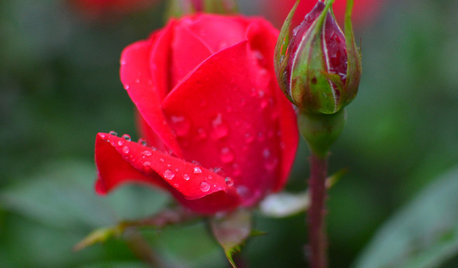
GARDENING GUIDESGreat Design Plant: Knock Out Roses
As glorious as their high-maintenance kin for a fraction of the work, Knock Out roses make even beginners look like garden stars
Full Story
WINTER GARDENINGPruning Secrets for Exquisite Roses
Encourage gorgeous blooms year after year with this time-tested advice on how to prune your rosebush in winter for health and shape
Full Story
FALL GARDENING5 Ways to Put Fall Leaves to Work in Your Garden
Improve your soil and yard the organic way with a valuable garden booster that grows on trees
Full Story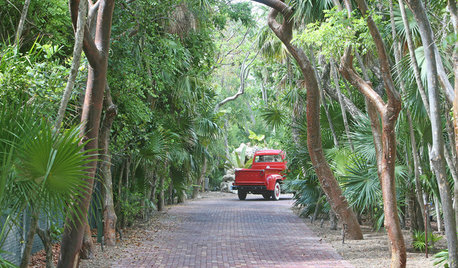
LANDSCAPE DESIGNThe Unparalleled Power of Trees
Discover the beauty and magic of trees, and why a landscape without them just isn't the same
Full Story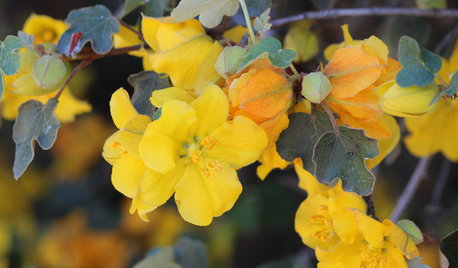
CALIFORNIA GARDENINGCalifornia Gardener's May Checklist
Only one major chore but a plethora of planting possibilities means a delightful month in California gardens
Full Story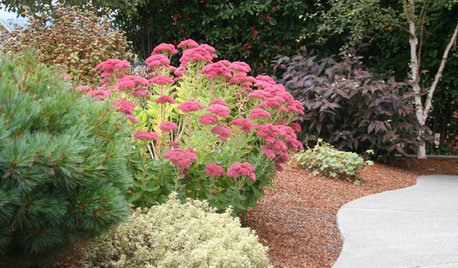
GARDENING GUIDESPacific Northwest Gardener's August Checklist
Deadheading perennials, cutting raspberry canes and preparing for the onion harvest keeps Northwest gardeners busy in August
Full Story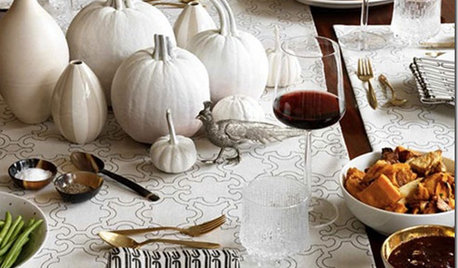
LIFEHow to Keep Your Pets Safe During the Holidays
To avoid an unwanted trip to the vet, be aware of these holiday-related hazards for dogs and cats
Full StoryMore Discussions







mike_rivers